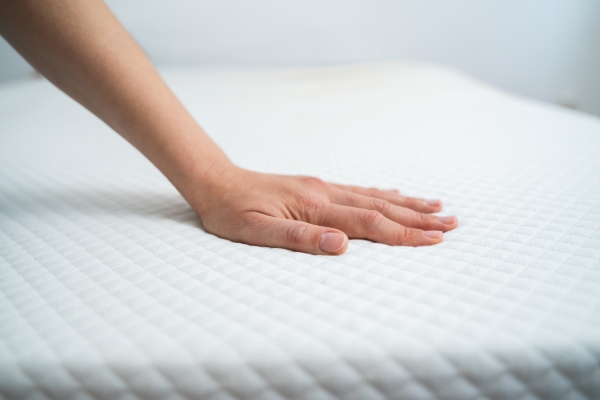Do Air Mattresses Get Softer Over Time?
Air mattresses have become increasingly popular in recent years, and it’s easy to see why. They offer a range of benefits, including adjustable firmness, pressure relief, and comfort. However, one question that many people have about air mattresses is whether they get softer over time.
The answer to this question is not a simple yes or no. It depends on several factors, including the type of mattress, the materials used, and how well it’s maintained.
In this article, we’ll take a closer look at the factors that affect the softness of an air mattress over time and provide some tips on how to keep your mattress in good condition.
Factors That Affect the Softness of an Air Mattress
-
Materials Used
The materials used to make an air mattress can affect how soft it gets over time. Some materials, such as memory foam, are designed to conform to the body and provide pressure relief. These materials can become softer over time as they break down and lose their shape. Other materials, such as latex, are more resistant to wear and tear and may not soften as much over time.
-
Air Pressure
The air pressure in an air mattress can also affect its softness. If the air pressure is too low, the mattress may become too soft and lose its support. On the other hand, if the air pressure is too high, the mattress may become too firm and uncomfortable. Maintaining the correct air pressure can help keep the mattress at the right level of softness.
-
Weight Capacity
The weight capacity of an air mattress can also affect how soft it gets over time. If the mattress is designed to support a heavy person, it may become softer more quickly than a mattress designed for a lighter person. This is because the weight of the person can cause the materials to compress and lose their shape.
-
Maintenance
How well an air mattress is maintained can also affect its softness over time. If the mattress is not properly cleaned and dried, it can develop mold and mildew, which can cause it to become softer and less supportive. Regular cleaning and maintenance can help keep the mattress in good condition and prevent it from becoming too soft.
Do Air Mattresses Get Softer Over Time?
So, do air mattresses get softer over time? The answer is yes, but it depends on the factors mentioned above. The materials used, air pressure, weight capacity, and maintenance all play a role in how soft an air mattress becomes over time.
However, it’s important to note that some air mattresses are designed to maintain their firmness and support over time. These mattresses may be made with higher-quality materials and have a more robust construction that prevents them from becoming too soft.
Tips for Keeping Your Air Mattress in Good Condition
While it’s normal for an air mattress to become softer over time, there are some things you can do to keep it in good condition and prevent it from becoming too soft. Here are some tips:
-
Maintain the Correct Air Pressure
Maintaining the correct air pressure in your air mattress is essential for keeping it at the right level of softness. Make sure to check the air pressure regularly and adjust it as needed.
-
Clean and Dry the Mattress Regularly
Regular cleaning and drying of your air mattress can help prevent mold and mildew from developing, which can cause it to become softer and less supportive. Use a mild detergent and dry the mattress completely before re-inflating it.
-
Use a Mattress Protector
Using a mattress protector can help protect your air mattress from stains, spills, and other accidents that can cause it to become softer. It can also help prevent mold and mildew from developing.
-
Rotate the Mattress
Rotating your air mattress regularly can help ensure that it wears evenly and doesn’t become too soft in one spot. This can help maintain its support and pressure relief.
5. Check for Leaks
Check your air mattress regularly for any signs of leaks. If you notice that the mattress is losing air, it’s important to address the issue right away. Small leaks can be repaired with a patch kit, while larger leaks may require a replacement mattress.
6. Store the Mattress Properly
When not in use, store your air mattress in a cool, dry place away from direct sunlight. Avoid storing it in a damp or humid environment, as this can cause mold and mildew to develop.
7. Avoid Bending or Standing On the Mattress
Avoid bending or standing on your air mattress, as this can cause it to become misshapen or develop weak spots. Instead, use a mattress protector and rotate the mattress regularly to ensure even wear.
8. Avoid Exposure to Extreme Temperatures
Avoid exposing your air mattress to extreme temperatures, either hot or cold. Extreme temperatures can cause the materials to expand or contract, which can affect the mattress’s shape and performance.
9. Use a Mattress Pump with a Pressure Gauge
When inflating your air mattress, use a mattress pump with a pressure gauge to ensure that the pressure is within the recommended range. Overinflating or underinflating the mattress can affect its comfort and longevity.
In summary, by following these tips, you can help keep your air mattress in good condition and prevent it from becoming too soft over time. Regular maintenance, cleaning, and rotation can help ensure that your air mattress remains comfortable and supportive for years to come.

